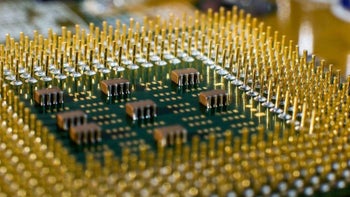The global chip shortage has finally hit Apple

Most of us have been well aware of the serious semiconductor chip shortage that has been affecting computing technology worldwide since a year ago. The shortage was caused by a number of factors, including decreasing foundry options for tech companies to outsource chip production, and miscalculated forecasts of demand during the pandemic.
The IT industry, for one, saw an unprecedented surge as people stayed home with consumer electronics providing their only source of entertainment. (In hindsight, it shouldn't have been so unprecedented: if you have no other choice but to stay home, wouldn't you play video games all day too?)
The global chip shortage has been affecting car and truck industries as well as the smartphone sector, and has been a key factor in the shortage of PS5 and gaming graphics cards. This crisis is unfortunately predicted to last well into next year.
Until now, Apple has been steps ahead of everyone and insofar seemed immune to the shortage affecting its competitors. Samsung, Huawei, Xiaomi, and others have spoken out or taken measures as a consequence, while Apple stayed mum and raked in $111B in the fall of 2020—an all-time high score for the company.
Apple's secret has been its forward thinking: early on, Apple secured up to 80% of TSMC (the world's biggest smartphone chip foundry) 5-nanometer chip production for this year, leaving its competitors struggling to divvy up production between the remaining foundries' capacity. TSMC recently announced an investment of $100B into expanding its facilities over the next 3 years, in an effort to remedy the current chip shortage. However, it will be a long process before this can provide any real relief to the situation.
As a result of the delay, Apple has pushed back a portion of [MacBook and iPad] component orders...
Even after all the precautionary steps Apple has taken, a Nikkei report (via The Verge) reveals that this tech giant, too, has finally succumbed to the effects of the global chip shortage. In particular, the devices impacted are the MacBook and iPad at the moment.
In MacBook production, "the mounting of components on printed circuit boards before final assembly" is currently suffering a delay. On the other hand, a lack of iPad displays and related components are to blame for slowed production of the iPad. It's unspecified whether a particular model is affected, or all of them.
There is also no information on whether this will impact the launch of the awaited iPad mini 6 or the iPad Pro 2021, which are set for release this year.
We can rest easy knowing that at least production of Apple's true signature device—the iPhone—doesn't appear in any danger yet, and we can expect the tech giant to continue delivering with its cutting-edge smartphones following Apple's record flagship sales in the U.S. in 2020.









Things that are NOT allowed: